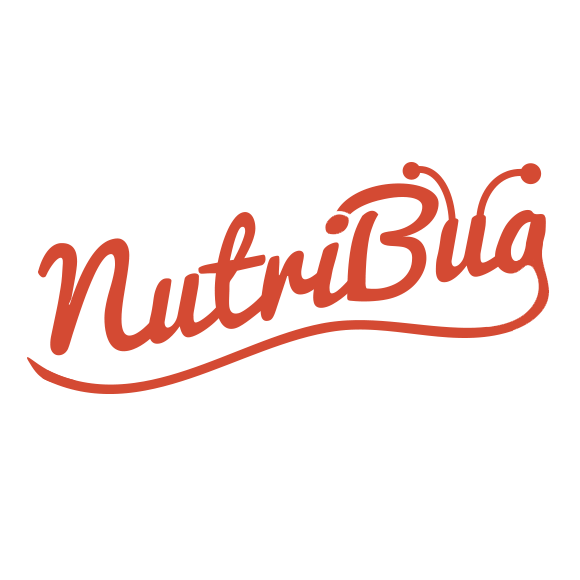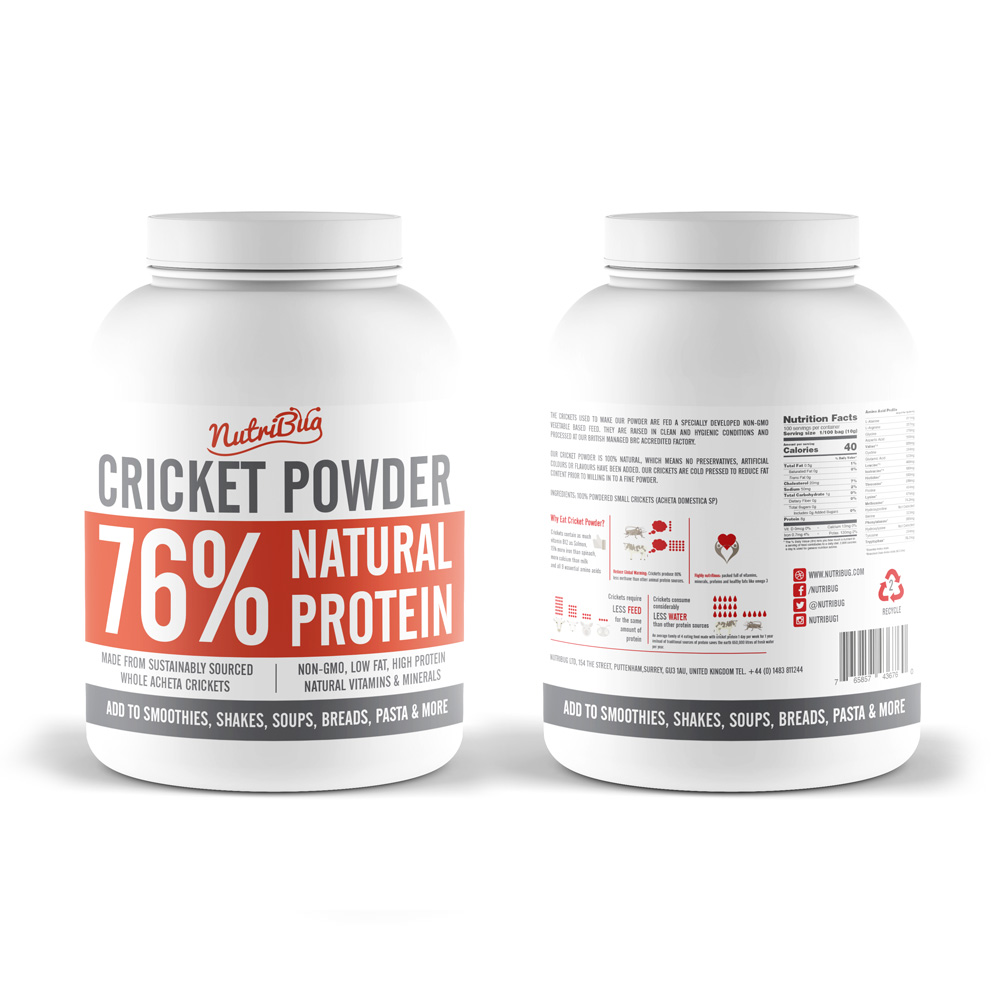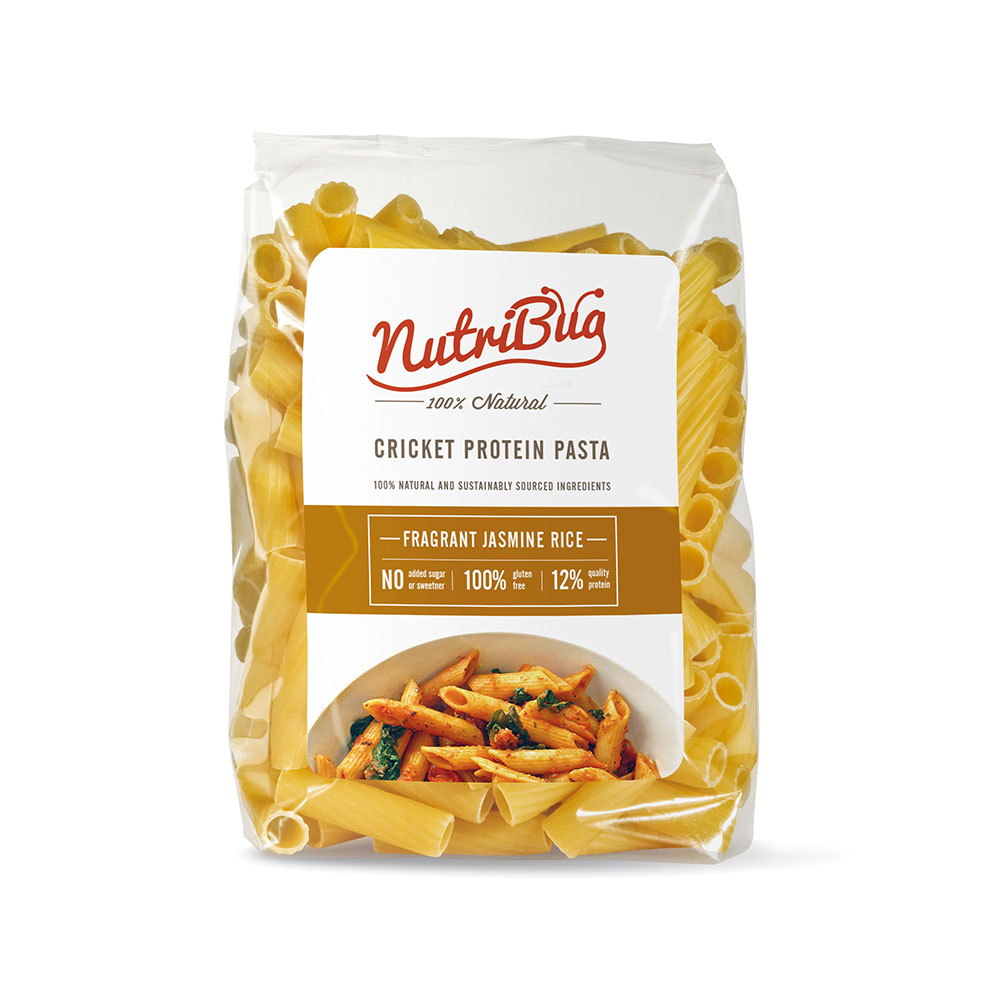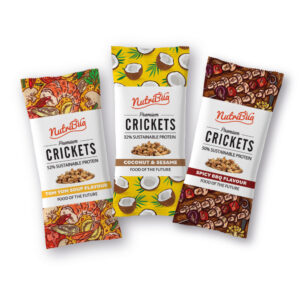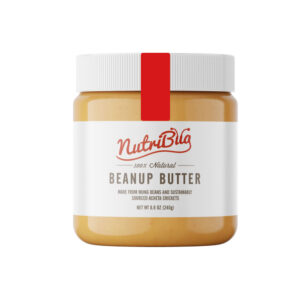Description
Cricket Powder is high in protein, vitamins, minerals and is low in fat. It is made from 100% Acheta domesticus crickets.
Unlike whey, Casein and other protein powders, cricket powder is not heavily processed. It is 100% natural and does not contain any other ingredients.
The crickets we use on our powder are raised commercially at GAP (Good Agricultural Practices) certified farms. They are fed a specifically developed, plant based diet and are raised in clean and hygienic conditions. Containing no preservatives, artificial colours or flavours, this low-fat powder has many nutritional benefits. It is packed with vitamin B12, fiber and iron, and rich in protein. It can be mixed with smoothies, baked goods, soups and much more.
A new clinical trial at University of Wisconsin-Madison shows that consuming crickets can help support the growth of beneficial gut bacteria and that eating crickets is not only safe at high doses but may also reduce inflammation in the body.
Our cricket powder is manufactured at a GMP, HACCP and BRC certified factory where the crickets undergo a thorough cleaning process. They are hygienically processed into powder and packed ready to be shipped off to you. Each 100 grams (0.22 pounds) of cricket powder contains approximately 1,112 of our premium Acheta Domestica crickets!
Our cricket protein powder works out at just £0.04p per gram of protein. For comparison purposes some leading UK whey protein brands average 0.54p per gram of protein.
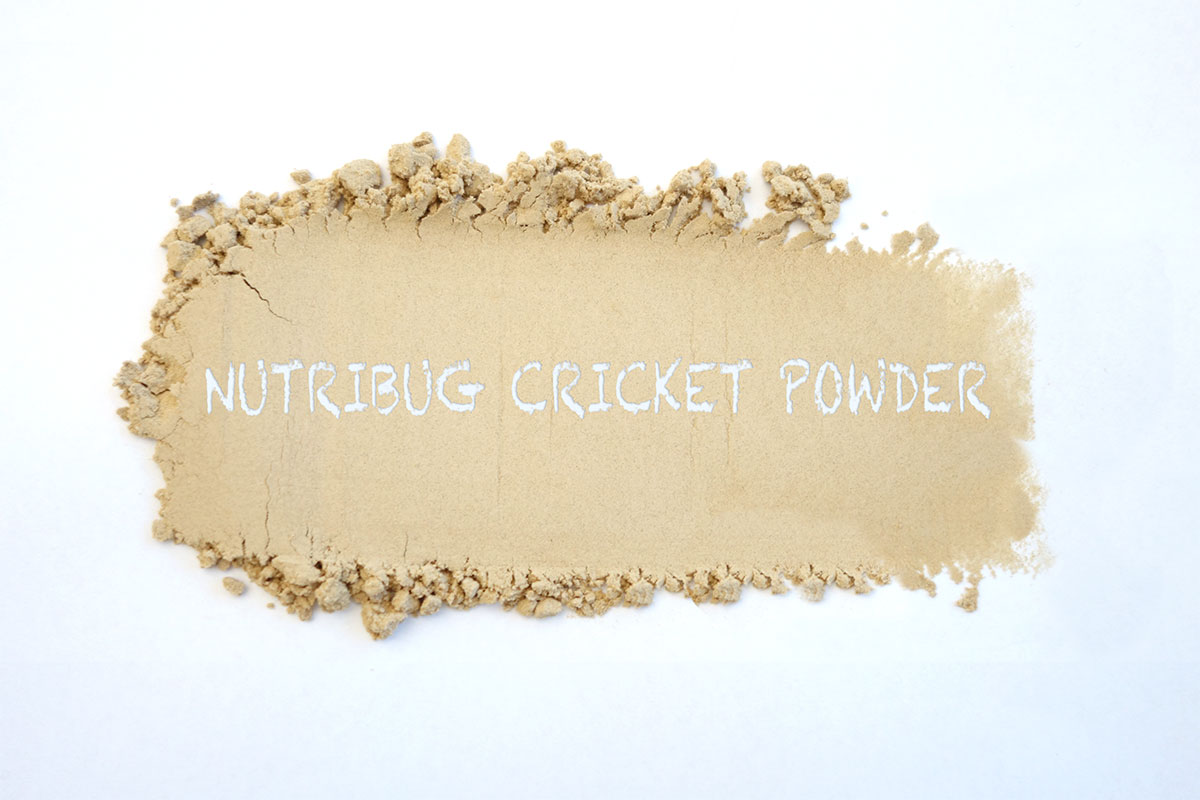
For the details:
Ingredients: 100% cricket (Acheta domestica Sp)
Our cricket powder is tested by ALS Global.
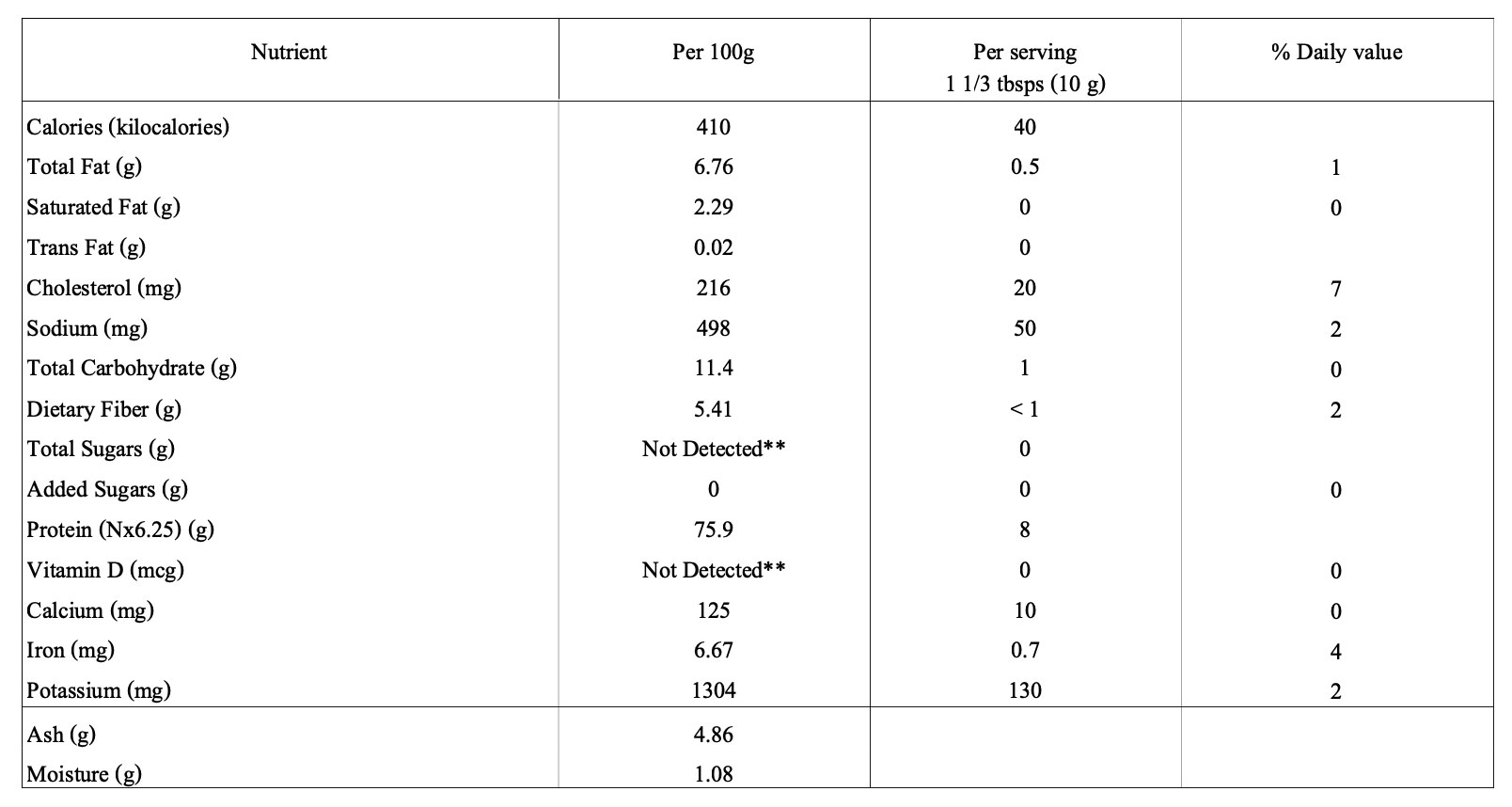
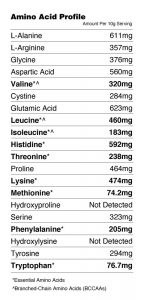
Cricket Powder Nutrition
100g cricket powder contains 16.6 mcg vitamin B12 per 100g. The recommended dietary allowances (RDAs) of vitamin B12 is 1.8 mcg. Therefore just 11g cricket powder will deliver your RDA of vitamin B12.
Sources of vitamin B12 per 100g.
Cricket Powder 16.6 mcg
Fresh Crickets 5.1 mcg
Fresh Eggs 1.3 mcg
Whole Milk 0.4 mcg
Swiss Cheese 1.4 mcg
Soy Milk 0.4 mcg
Plant based meats 3.3 mcg
Fortified cereals (dry) 3.3 mcg
Salmon 3.2 mcg
Beef (all cuts) 3.0 mcg
Pork (all cuts) 0.7 mcg
Chicken (all cuts) 0.4 mcg
Dietary Fibre
Everyday we need 25 grams of fibre. 100g Cricket powder will provide you with 5 grams (20% RDA) of dietary fibre.
Cricket powder is rich in potassium
Adults should be consuming around 4,700 mg of potassium per day. 100g of cricket powder contains 1,304 mg potassium. For comparison purposes, a medium sized banana contains 422 mg, half an avocado 487 mg/100g and a sweet potato contains 541 mg per 100g.
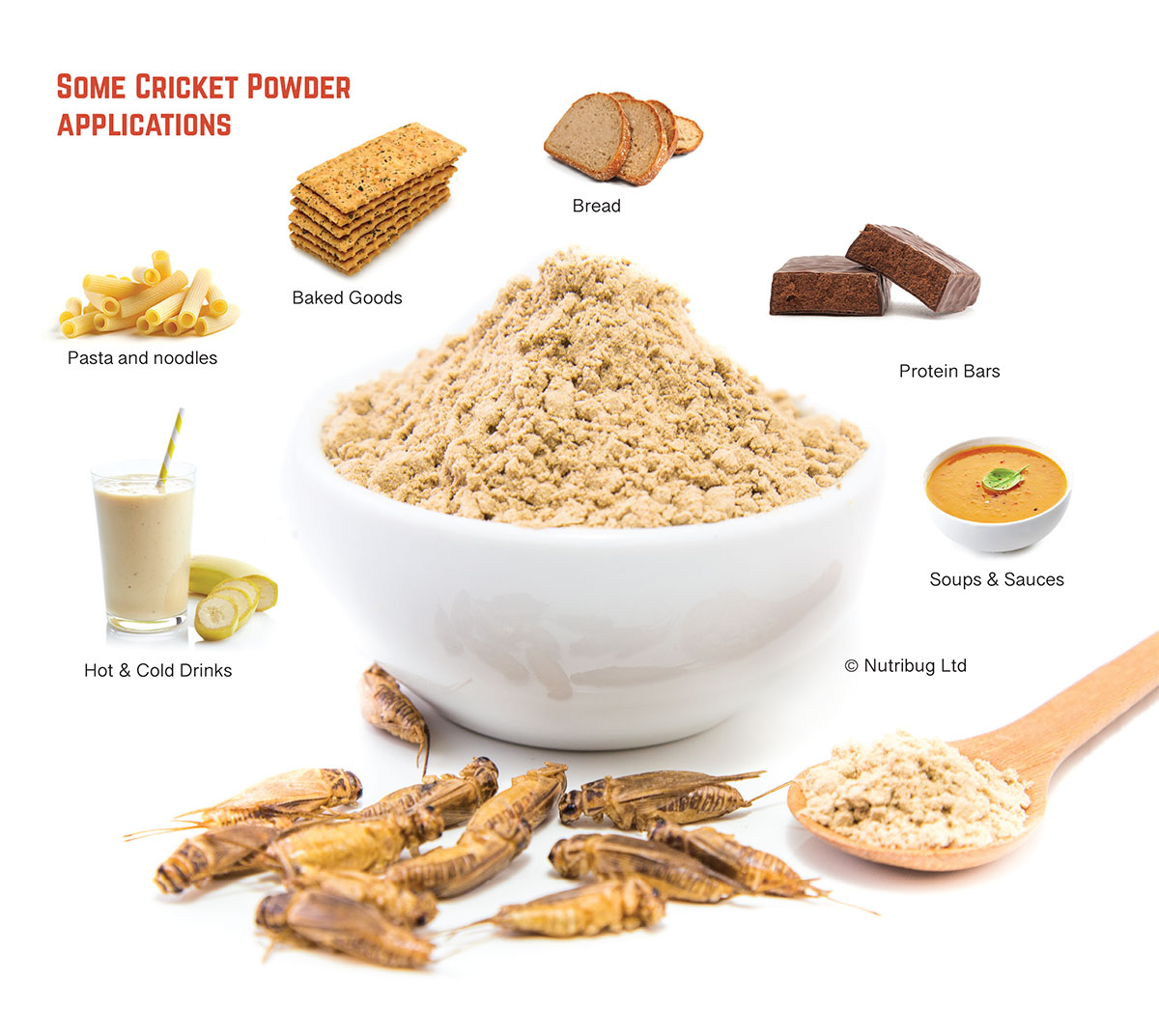
Why Eat Cricket Powder?
1. Because it’s highly nutritious and packed full of vitamins, minerals, proteins and healthy fats like omega 3. And unlike plant proteins, cricket protein contains a good source of vitamin B12.
2. Crickets are the most environmentally friendly source of high protein available.
3. Crickets contain more vitamin B12 than Salmon, 15% more iron than spinach, more calcium than milk and contains all 9 essential amino acids.
4. Switching to an insect diet would help reduce global warming: Crickets produce 80% less methane than other animal protein sources.
5. Crickets require 6 x less feed than cattle, 4 x less than sheep and 2 x less than pigs to produce the same amount of protein.
6. Crickets consume considerably less water than other protein sources: an average family of 4 eating food made with cricket protein 1 day per week for 1 year instead of traditional sources of protein saves the earth 650,000 liters of freshwater per year.
7. The slaughtering process is less gruesome and more humane than cattle, pork, and chicken. The process involves cooling, which puts them in a dormant state called diapause. after this, the temperature is reduced further, which puts them to sleep quickly and humanely.
